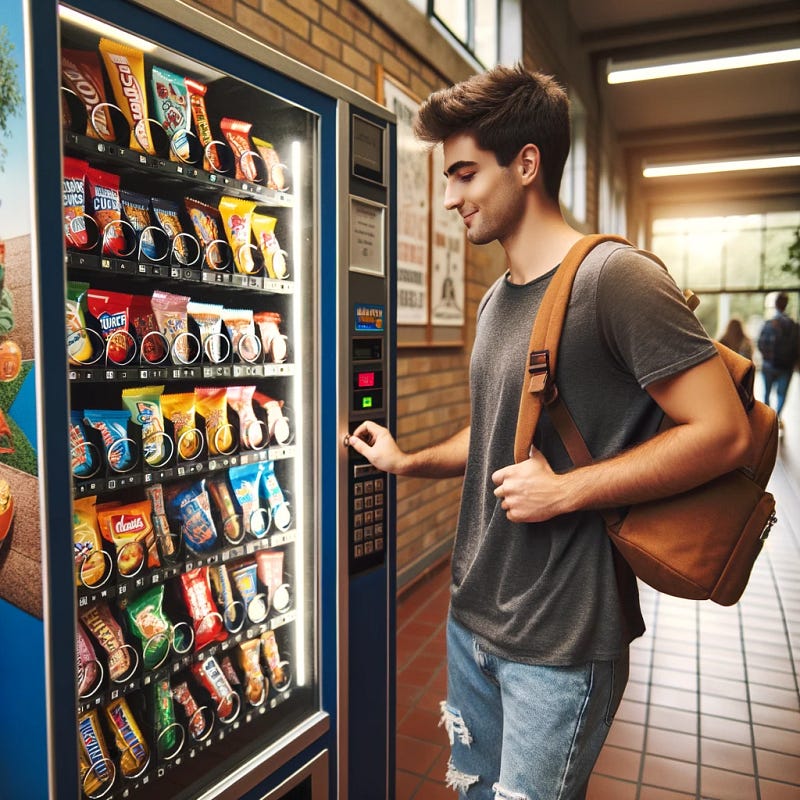Privacy Alert: Are Vending Machines Invading Your Space?
Written on
Chapter 1: The Unseen Dangers of Vending Machines
Imagine reaching for your favorite snack from a vending machine. You might not realize that this seemingly innocent device could be equipped with a hidden camera capturing your image without your knowledge. This unsettling revelation recently came to light at the University of Waterloo, igniting a significant debate about privacy and surveillance.
The incident began when a student noticed an error message on a vending machine, prompting discussions both on campus and online.
Section 1.1: The Disturbing Discovery
As curiosity grew, students unraveled the mystery behind the error message, uncovering the unsettling truth: the machine employed facial recognition technology. The news spread rapidly, leaving many students questioning the necessity of such surveillance from a candy machine.
Subsection 1.1.1: Student Reactions

The campus buzzed with concern as students took action, covering the tiny camera openings with chewing gum and other materials, making it clear that they valued their privacy.
Section 1.2: Vendor's Response
Adaria Vending, the company responsible for the machines, claimed they were unaware of any data collection capabilities. MARS, the owner, and Invenda, the manufacturer, remained silent when questioned about the situation. Students, however, continued to investigate, revealing that these machines were created to detect and analyze the individuals in front of them.
Chapter 2: The Ethical Dilemma
The ethical implications of such technology are significant. While the manufacturers assert that the machines do not store or share facial data, the skepticism surrounding this claim is palpable. The discussion centers around the core issue: just because technology can monitor us, should it?
Chapter 3: The Broader Implications
This situation serves as a wake-up call regarding the quiet proliferation of surveillance technology. Today, it’s a vending machine; tomorrow, what could it be? Navigating our digital landscape necessitates a continuous balancing act between convenience and personal privacy.
The story of the vending machines at Waterloo invites us to remain vigilant in protecting our privacy rights against unwarranted surveillance by artificial intelligence.
Conclusion: The Need for Vigilance
The vending machine controversy at the University of Waterloo sparks essential conversations about the boundaries between technology and individual privacy. It reflects a global dialogue surrounding privacy, ethics, and the influence of AI on our daily lives. This is a call to action for everyone to stay informed and proactive in safeguarding our rights in an increasingly digital world.